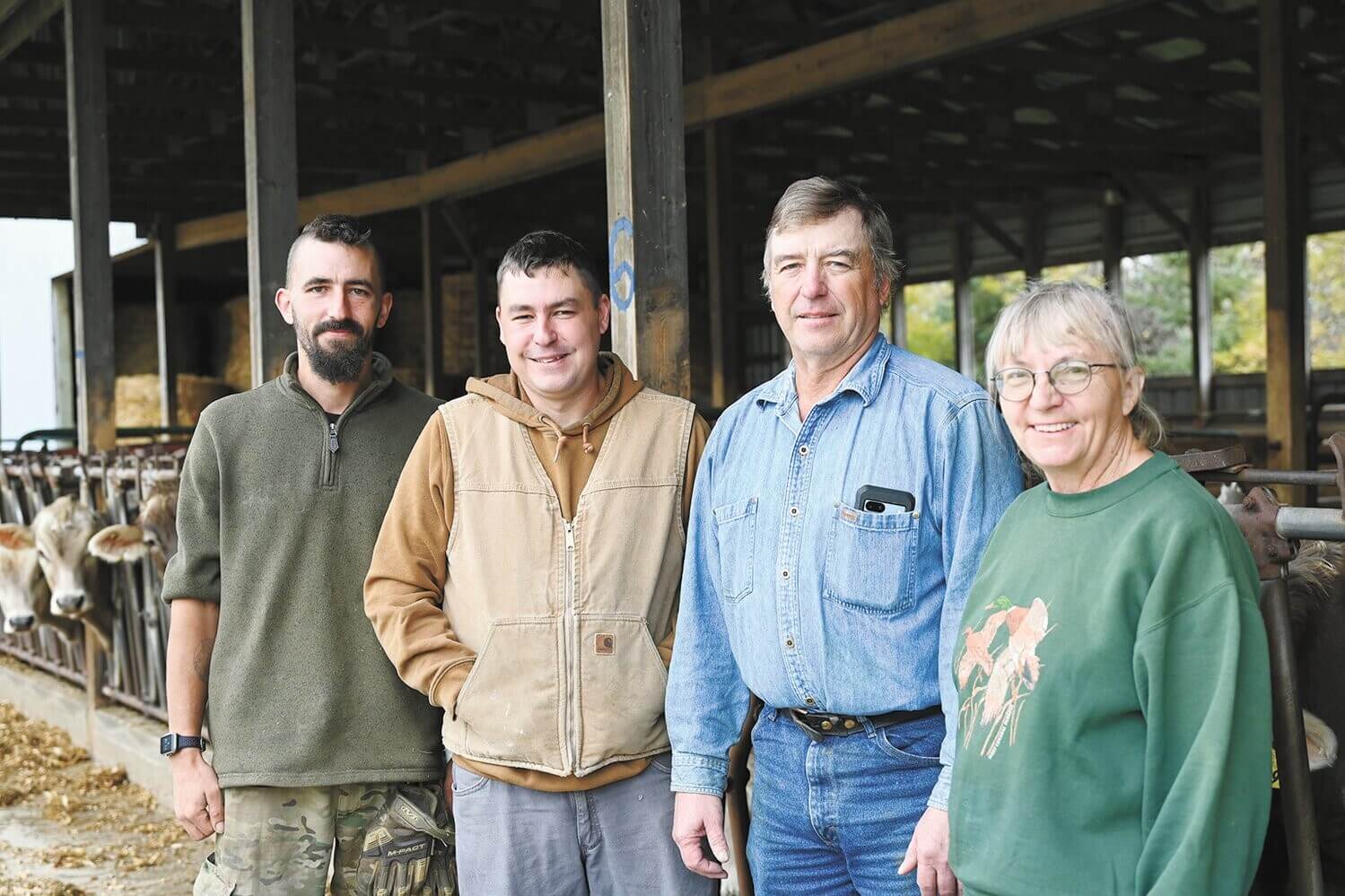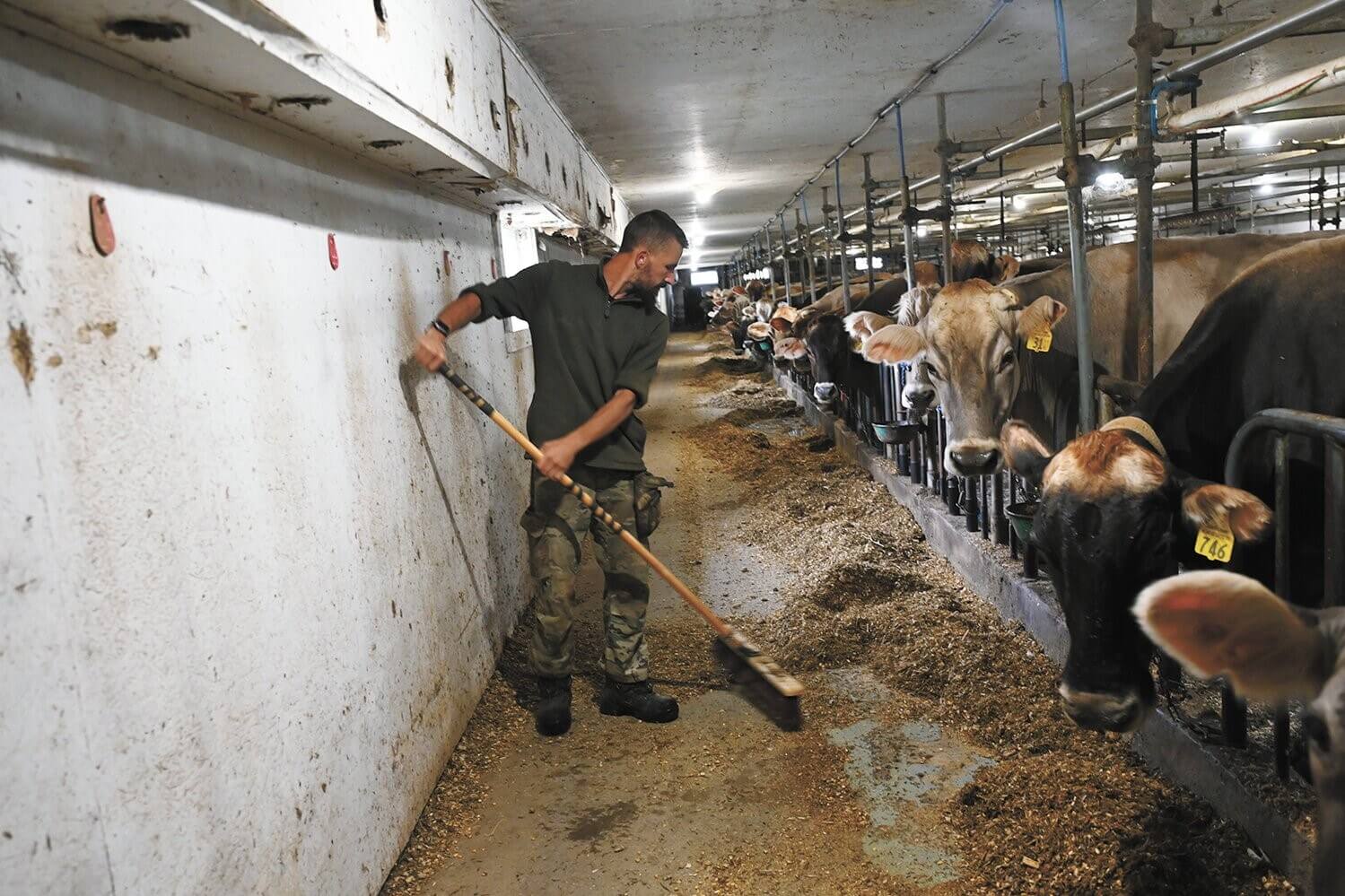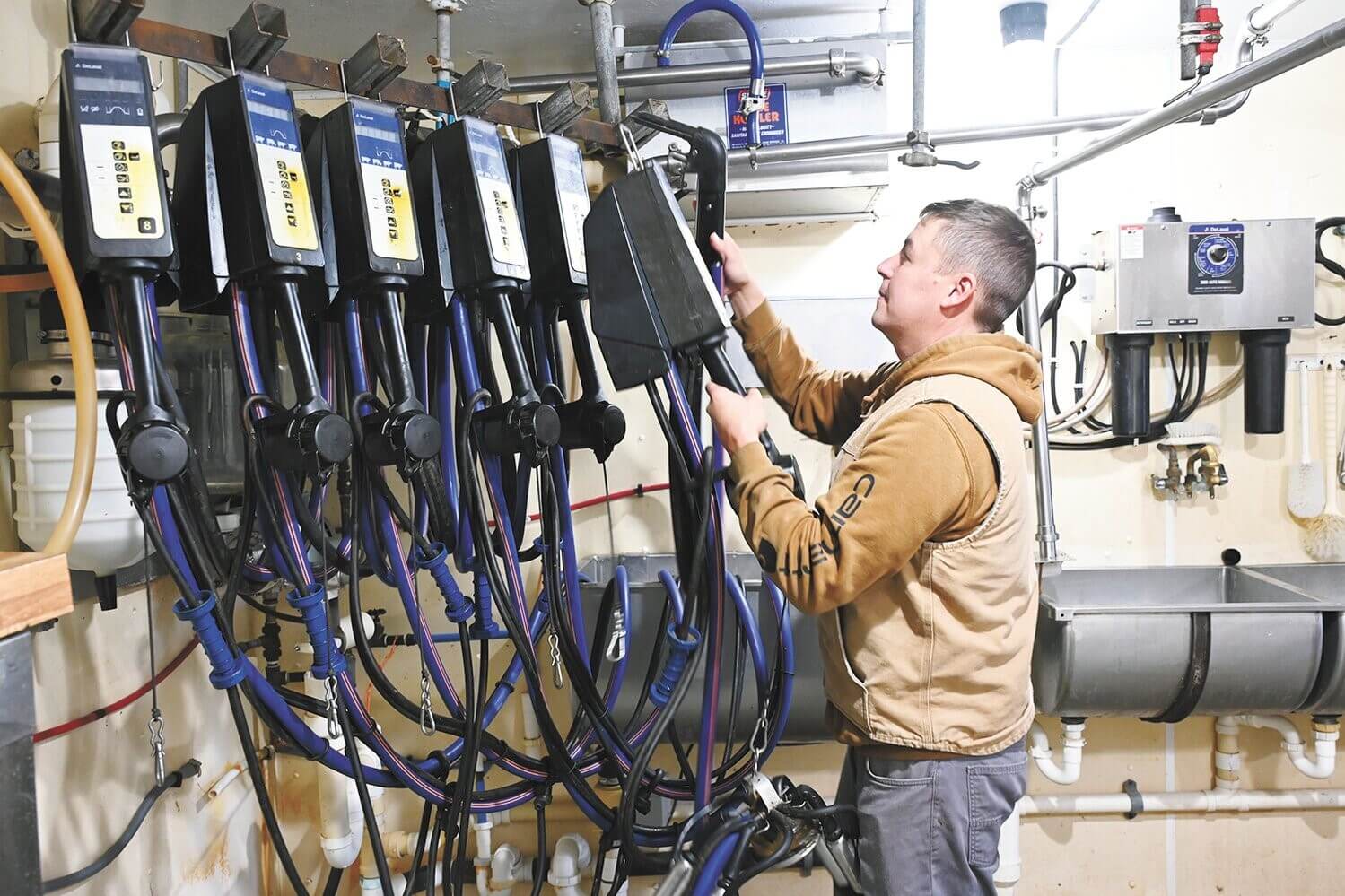Kimm Dairy Transitions to Next Generation
By Tiffany Klaphake, DairyStar.com
Kimm Family
 |
| Dan (from left), Ben, Brian and Barb Kimm gather Oct. 15 at their farm, Kimm Dairy, near Pelican Rapids, Minnesota. The farm is being transferred to Ben and Dan, who represent the fourth generation. |
PELICAN RAPIDS, Minn. — Brian Kimm knows he is a lucky man to have not one, but two of his sons return to the farm and carry it into the future.
“I feel good about having something for them to come back home to,” Brian said.
Brian and his wife, Barb, and their two sons, Dan and Ben, milk 85 registered Brown Swiss cows in a tie-stall barn at Kimm Dairy near Pelican Rapids. Together they farm around 400 acres of land, raising corn and alfalfa.
Brian said he wants to be done milking cows every day by the end of the year, but he will still help his sons as needed around the farm.
“I started milking every day when I was 12, so I figured 50 years was enough,” Brian said. “I liked doing it, but I am at the point I want to quit while my body is still in good shape so I can still do other things.”
Dan has been full time on the farm since 2013, when Brian’s dad died.
“I always planned on coming back to the farm,” Dan said. “I like cows and driving a tractor to do field work.”
 |
| Dan Kimm sweeps mangers Oct. 15 at his family’s farm, Kimm Dairy, near Pelican Rapids, Minnesota. The Kimms milk 85 registered Brown Swiss cows. |
Ben joined the family operation earlier this year after working off the farm for 17 years.
“It was alright, but I always wanted to come back to the farm,” Ben said. “I think it is good to bring back experience from off the farm to the farm.”
Ben is still an active member of the Army National Guard.
“Everyone is still finding where they fit in, but I like the cattle and Dan is more of the crops guy,” Ben said. “I am gone enough with the Guard, and everyone needs to know how to do everything in case someone needs to take off.”
Previously, Ben worked as a road and field mechanic and worked his way up to service manager with a company in Fargo. He would often come to the farm to help out with various projects as time allowed.
“Ben brings back a skillset of working with equipment, and that was never my strongest skillset,” Brian said. “Mine was the genetics and cattle.”
 |
| Ben Kimm pulls a miking unit out Oct. 15 on his family’s farm, Kimm Dairy, near Pelican Rapids, Minnesota. Kimm returned full time to the family farm earlier this year. |
For the past few years, Ben and his family lived on the farm while he was working in town.
“Part of the reason I stayed working in town as long as I did was to save up enough money to build a house on the farm for my family,” Ben said.
Ben is married and has two children, and Dan is married with three children. Some of their children started showing cattle at the county fair this past summer through 4-H.
“I love being able to see my grandkids every day,” Brian said. “I have friends who only see their grandkids a couple of times a year.”
On the farm, the brothers, who represent the fourth generation on the farm, are finding a new routine to get chores and projects accomplished. Ben is also learning how to do the A.I. work for their farm.
“We got to check off a lot of the to-do list this summer with Ben being back full time,” Brian said.
The Kimms were able to finish and cement the inside of a shop and put up a new grain bin.
“We have different strengths and we work according to those and that seems to work pretty well,” Ben said.
Dan agreed.
“We have a lot of the same mentality of what we want to do and what project to work on next,” he said.
Brian has instilled the same values he was taught growing up on the farm.
“On the farm you have to be able to make the decision and take responsibility for those decisions,” Brian said.
The brothers take their father’s words of wisdom as they transition into ownership of the farm that has been in the family since 1955.
“We are on the same page as far as what we want to modernize next,” Ben said. “The nice thing is that we are coming to a farm that is built to be sustainable, and everything here is designed to keep going.”
Brian’s goal was to progressively modernize the farm so his sons would have the option to come back if they wanted to, without having to take on too much debt.
“From the time I was young, I knew dairy farming was what I wanted to do,” Brian said. “I wanted to build something here, not just to survive, but to make improvements to what I had so we can keep going. That is what I am most proud of, that I have something here that the boys want to come back to.”